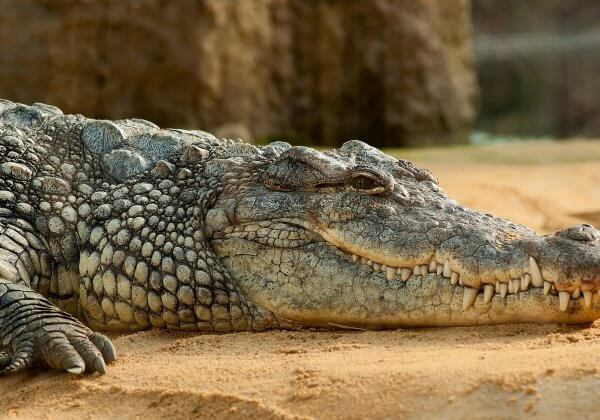These Sheep Were Shorn and Then Left in the Cold
Can you imagine standing outside naked all day and all night in the cold winter weather? That’s exactly what these sheep endured at Murrayfield Station in Tasmania.
https://www.facebook.com/PETAAustraliaOfficial/videos/2427745754169904
The forecast was cold, wet and windy– typical for mid-July – but the station went ahead with shearing. The same weekend these images were taken, the Bureau of Meteorology issued a warning to sheep graziers saying that cold temperatures, showers, and strong southwesterly winds were expected. “There is a risk of losses of lambs and sheep exposed to these conditions.”
The animals had no wool to protect them, yet according to an eyewitness, they were still left out in the cold. They were given no hay or supplementary feed and weren’t even put back into the shearing shed which would have offered some protection.
A complaint has been filed with the RSPCA.

A History of Neglect
This is not the first time Murrayfield Station has been in the spotlight for the neglect and abuse of sheep. In 2015, station operators were fined after a random inspection of the property found a paralysed sheep was left to suffer unjustifiable pain for “an extended period of time”. Both a worker and the property manager confirmed that they were aware of the sheep’s injuries and that the animal had been run over by an ATV the previous day. However, instead of having been immediately treated or euthanised, the sheep had simply been left in agony overnight on a winter’s evening when it was raining heavily.
In that instance, the Department of Primary Industries, Parks, Water and Environment determined there was adequate evidence against both the property manager and the Indigenous Land Corporation to file cruelty-to-animals charges. The case should have been clear-cut from the start. Rather than pursuing adequate charges, though, the department instead issued a fine of just $280.
Murrayfield Station operates under the Responsible Wool Standard (RWS), which means it’s supposed to ensure that industry best practices are followed. It apparently didn’t even meet the bare minimum required by legal standards, let alone the “higher welfare” promises of the RWS.

Sheep Need Their Wool This Winter – You Don’t
Farmers will often tell you that sheep “need to be shorn” – something which is only true because of human manipulation – but not one person could argue that it’s an acceptable practice from the standpoint of animal welfare to take fleece from sheep in the dead of winter in Tasmania. This was done for one reason only: money.
It’s not as if Murrayfield is alone in shearing sheep in cold conditions. Traditionally, many Australian farmers have shorn in the autumn before their winter and spring lambing, in the hope of obtaining thicker wool, which means increased profit – but sheep are growing that wool to protect themselves from cooler temperatures.
During the winter, the survival rate of lambs is abysmal. Around 10 to 15 million lambs die every year– largely because of exposure.
Speak Up for Sheep Now
PETA and our affiliates have documented cruelty to sheep at 99 wool-industry facilities in Australia, the UK, North America, and South America.
In Victoria in 2016, six shearers were charged with cruelty to animals after evidence showed that they beat scared sheep in the face, punched them, and stamped on their heads and necks. All six were found guilty.
We’ll continue to seek justice for sheep, but this abuse is systemic. The best thing you can do for them is refuse to buy wool. It’s easy to check the label before you buy clothing and other items. If it says “wool”, leave the item on the shelf and look for an animal-free alternative.
Meanwhile, we’re asking retailers to stop selling this cruelly obtained material. Help us persuade Forever 21 to ban wool from store shelves:







